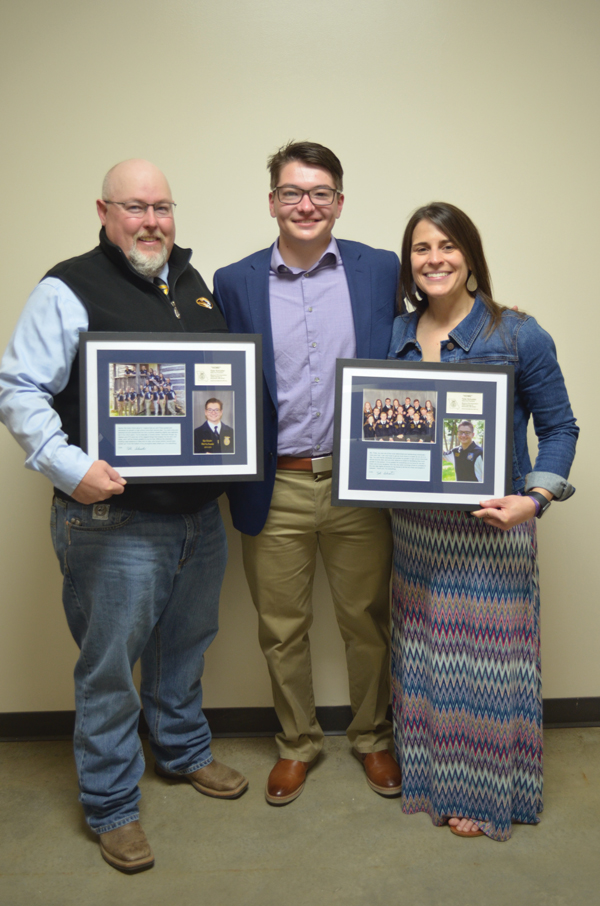Setting an Example: Boonville FFA
October 6, 2023
Written By Neal Fandek

Not every student gets to take classes with the president.
President of the National Association of Agricultural Educators (NAAE), that is, a role Deanna Schnuck, agricultural education instructor and FFA advisor for the Boonslick Technical Education Center, recently added to an already impressive resume. The center is part of the Boonville (Mo.) School District, educating area students grades 9-12 in more technical and professional subjects. She and co-instructor and Boonville FFA advisor Doug Henke share the course load.
Schnuck is also on the National FFA Board of Directors and previously held several positions with the NAAE and the Missouri Vocational Agriculture Teachers Association including president. She has been awarded both Honorary State and American FFA Degrees, serves on the University of Missouri Alumni Association, is certified in Curriculum for Agricultural Science Education and helps run the Veggie Patch, the fresh fruit and vegetable business she helped start nearly 20 years ago as a supervised agricultural experience (SAE).
Does she ever sleep?
“Not much, some days,” she said. “You have to balance your time. Our students do it every day, so I need to set an example of how to be involved, in Boonville, statewide and nationally … We must set the example for the future of our profession.”
Henke, no slouch himself, agreed. He is a 20-plus-year teaching veteran with bachelor’s and master’s degrees in agricultural education from the University of Missouri. He also steps in as auctioneer in his family’s auction business as needed.
The two teach 13 different classes and supervise SAE internships. The classes include agricultural science, conservation of natural resources, floriculture, greenhouse operation and management, landscaping, and turf grass management. Students can earn high school and college credits and industry-recognized credentials.
These are somewhat unusual ag classes, but the fact is fewer students get their start in production agriculture in Cooper County, the state or the nation today.
“In the past, we taught a stand-alone crop science course, but that doesn’t fit today’s demographics,” Schnuck said. “Sure, we’ve had to evolve. We try to integrate new ideas in classes based on student career interests and community needs.”
These needs and interests have yielded unusual student projects. For instance, one project centered on creating a video about the 2019 Missouri River flood that devastated parts of Cooper and Howard counties and its effects on the family farm. Other projects have included a video on the problem of abandoned horses, students helping elderly in the community, a Toys for Tots drive, and creating blankets, name tags and onesies for premature infants in the local neonatal intensive care unit.
It is no surprise the Boonville FFA was named the top state chapter a few years back. They have also won the state FFA Ag Issues Forum for the flood video, and Schnuck recently won the Agricultural Business Council of Kansas City’s Distinguished Service Award.
But is a rigorous ag education still relevant when the most pressing community needs are not agricultural?
“Definitely,” Henke said. “It challenges students not being challenged in other programs. The soft skills we teach, the competitions they enter, all culminate to drive students to be successful in areas they never thought they could be.”
Henke added that there is always something new to learn.
Like what?
“Patience,” he laughed. “What they can accomplish, given time, can surprise you.”
Read more stories in the Ag Educators series.


